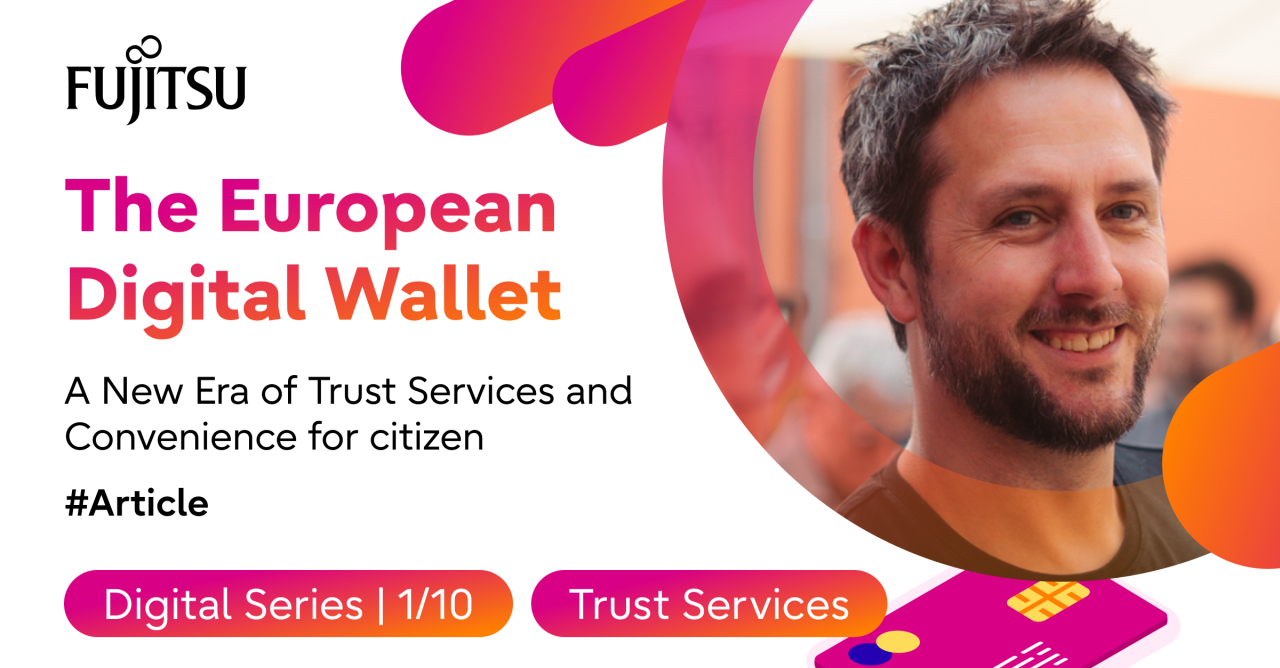DIGITAL SOLUTIONS
The European Digital Wallet: a new era of Trust Services and Convenience for citizen
In an age where digital transformation is not just a trend but a necessity, the European Digital Wallet (EDW) is a significant stride towards a connected and secure Europe. As an initiative under the EU's electronic identity and trust services (eIDAS) regulation, the EDW is set to revolutionize how citizens and businesses interact with public and private services.
February 7, 2024

In an age where digital transformation is not just a trend but a necessity, the European Digital Wallet (EDW) is a significant stride towards a connected and secure Europe. As an initiative under the EU’s electronic identity and trust services (eIDAS) regulation, the EDW is set to revolutionize how citizens and businesses interact with public and private services. This article aims to demystify the concept of the digital wallet, explore its benefits, and highlight its current state of deployment across Europe, with a particular focus on how Fujitsu, a leader in trusted service solutions, can facilitate this transition for Luxembourgish companies.
Understanding the European Digital Wallet
At its core, the European Digital Wallet is a secure digital tool that allows EU citizens to store and manage their personal and professional identities online. From 2026, EU member states will be obliged to provide these wallets, enabling citizens to link their national digital identities with various personal attributes such as driver’s licenses, diplomas, and bank accounts. This integration promises to simplify numerous administrative and business processes.

Concretely, in Luxembourgish financial sector, can bring several advantages, particularly considering its role in streamline digital processes and enhancing security. Typically, the EDW allows for rapid and reliable identity verification, which is a critical step in the insurance and banking sector. It can significantly streamline the customer onboarding process. Companies can quickly authenticate customer identities using the secure digital identities stored in the EDW. This efficiency not only enhances the customer experience but also reduces administrative overhead and the potential for fraud.
The EDW can play a crucial role in facilitating cross-border services within the EU. For Luxembourgish companies, this means an expanded market reach. Customers can easily use their digital identity to access services across EU member states. This not only opens new business opportunities for Luxembourgish insurers but also offers greater flexibility and convenience for customers who travel or move within the EU.
State of Play in Europe
The adoption of digital identity systems in Europe varies. Nordic countries like Norway and Sweden exhibit high penetration rates, with Sweden reaching 81%. The Netherlands, despite a slight decrease, remains high at 87%. Countries like Italy and France are catching up, with Italy showing a significant jump to 61%. Emerging growth is seen in countries like Portugal, Switzerland, and Austria, with Austria transitioning to the new ID Austria system.
While the concept is widely accepted, its practical application faces hurdles. For instance, less than a third of Italian users reportedly use wallet apps. In Germany, while 28% use wallet apps, a significant portion remains hesitant, primarily due to the lack of perceived need and concerns over data security.

Fujitsu: Paving the Way for Digital Wallet Integration in Luxembourg
As the EU moves towards a unified digital identity framework, Luxembourgish companies face the challenge of integrating these new technologies into their existing systems. Fujitsu emerges as a pivotal partner in this journey, offering expertise in trusted service solutions.
- Fujitsu’s expertise in digital transformation can ensure a smooth integration of digital wallet technologies into company processes.
- With its strong background in cybersecurity, Fujitsu can provide solutions that not only secure sensitive data but also ensure compliance with EU regulations.
- Understanding that each business has unique needs, Fujitsu offers tailored solutions to align with specific operational requirements.
The Road Ahead: Challenges and Opportunities
The path to fully adopting the European Digital Wallet is not without its challenges. These include:
- Cost Distribution: Determining how costs will be distributed among the state, private providers, and users.
- Legal Framework: Developing a comprehensive legal framework that accommodates the new digital identity ecosystem.
- User Adoption: Encouraging widespread adoption by demonstrating the wallet’s convenience and security.
Despite these challenges, the opportunities are immense. The European Digital Wallet can enhance the ease of doing business, streamline governmental processes, and bolster the digital economy.
The European Digital Wallet represents a significant step towards a digitally unified and secure Europe. Its potential to streamline processes, enhance security, and provide convenient access to services is unparalleled. For Luxembourgish companies, partnering with experienced integrators like Fujitsu offers a strategic advantage in navigating this digital transformation. As Europe progresses towards this digital future, it’s imperative for businesses to stay informed and prepared for the changes ahead. The European Digital Wallet is not just a technological advancement; it’s a gateway to a more connected and efficient European Union.